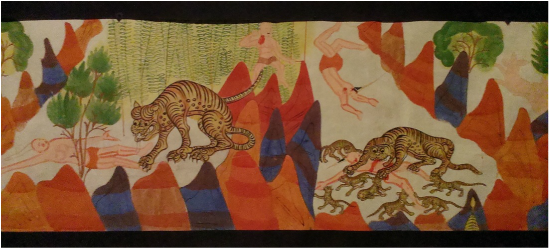[A]n emotional life that never had a chance of achieving bourgeois composure acquired a superficial stability by clumsily imitating the bourgeois system of emotional relations, prevalent especially among women, the system in which “So-and-so is my type but I’m not his,” or “I’m his but he’s not mine,” or in which “We’re made for each other” or “can’t stand the sight of each other” —in which clichés are taken as binding rules and any individual reaction, which takes some account of an actual person, becomes a deviation. For instance, my mother would say of my father: “Actually, he wasn’t my type.” And so this typology became a guide to life; it gave you a pleasantly objective feeling about yourself; you stopped worrying about your origins, your possibly dandruff-ridden, sweaty-footed individuality, or the daily renewed problem of how to go on living; being a type relieved the human molecule of his humiliating loneliness and isolation; he lost himself, yet now and then he was somebody, if only briefly.
Once you became a type, you floated through the streets, buoyed up by all the things you could pass with indifference, repelled by everything which, in forcing you to stop, brought you back bothersomely to yourself: the lines outside the shops, a high bridge across the Spree, a shop window with baby carriages in it. (She had given herself another secret abortion.) Always on the move to get away from yourself and keep your peace of mind. Motto: “Today I won’t think of anything; today I’ll enjoy myself.”
But my mother had not been crushed for good. She began to assert herself. No longer obliged to work her fingers to the bone, she became herself again. She got over her skittishness. She showed people the face with which she felt more or less at ease.
She read newspapers, but preferred books with stories that she could compare with her own life. She read the books I was reading, first Fallada, Knut Hamsun, Dostoevsky, Maxim Gorky, then Thomas Wolfe and William Faulkner. What she said about books could not have been put into print; she merely told me what had particularly caught her attention. “I’m not like that,” she sometimes said, as though the author had written about her. To her, every book was an account of her own life, and in reading she came to life; for the first time, she came out of her shell; she learned to talk about herself; and with each book she had more ideas on the subject. Little by little, I learned something more about her.


 RSS Feed
RSS Feed